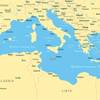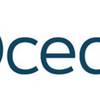In addressing the widely discussed issue of transparency, the INTERTANKO Working Group has been put together to find out whether there is some underlying solution to this discussion that will serve the desire of increasing safety and quality, while mitigating the impact of isolated
information that the industry is now required to make public. It will also serve to suggest responses to questions regarding the INTERTANKO
position on transparency.
In other words the motive of the working group is to arrive at a suggestion for a policy with respect to transparency, which improves the
record and image of the industry while taking the limelight away from the increasing and disjointed information that is being forced into the
public domain or close enough to create massive disruption.
The initial findings suggest that we use the current world attention on transparency to encourage a voluntary policy for further internal
transparency for each of INTERTANKO members. This we hope will set an environment for healthy competition in offering charterers a clearly
auditable service taking the spotlight away from isolated technical and other information that serves to confuse the media and act as a loose
cannon against responsible practices for safe maritime transport.
A prime example of the dangers of isolated public information, is the media inspired fear associated with class recommendations, which has
resulted in oil majors, owners and class, implementing detrimental changes to practices and in turn significantly reducing the degree of
risk assessment of ships defects.
A commitment to internal transparency, audited by industry experts, will lead to the integrity and recognition that the shipping industry strives
for.
The Working Group is considering among other policies the suggestion of a voluntary change in standards, as stated within each marine operator's
Safety Management System, to put the emphasis on progressively more measurable and demonstrable internal transparency.
This in time will be used to show the reduced relative importance of external inspections as a means to prove the quality of ships and the
quality of management.
This is no doubt the main purpose of the ISM code.
The suggestion is based on the assumption that a competent Tanker Operator should be able to demonstrate to a qualified auditor that
internal assessment of risk defects and non conformities is far more sophisticated and far more comprehensive than any external inspection or
audit by a third party. Keeping record of the differences in findings between internal and external inspections is good indicator of an
operator's diligence.
Furthermore the comparison between internal assessment and external provides continuous and enduring evidence of the operators attitude and
when adequately adopted by the industry should help to indicate due diligence.
Hopefully this will create a defense against the current expectation of "inevitable" legal rulings against owners for gross negligence in major
incidents.
Sponsored Content
Experience Custom Yacht Signs and Designs Tailored to Perfection!

Subscribe for
Maritime Reporter E-News
Maritime Reporter E-News is the maritime industry's largest circulation and most authoritative ENews Service, delivered to your Email five times per week









